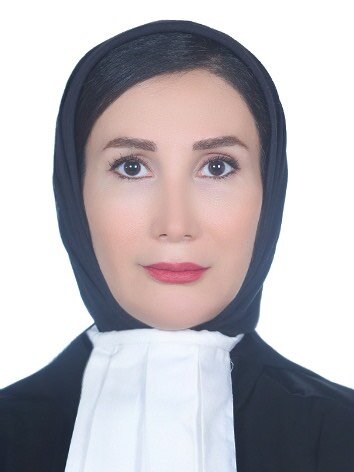Best Franchising Lawyers in Tehran
Share your needs with us, get contacted by law firms.
Free. Takes 2 min.
List of the best lawyers in Tehran, Iran
About Franchising Law in Tehran, Iran
Franchising is a rapidly growing business model in Tehran, Iran, catering to various industries such as food and beverages, retail, and services. It allows a business to expand by granting independent operators the right to use its brand, systems, and know-how in exchange for fees and royalties. The legal framework governing franchising in Iran involves the Commercial Code and other regulations related to commercial agreements. While Iran does not have specific franchising legislation, general principles of contract law are applied, making it essential for businesses involved in franchising to understand local laws and customs.
Why You May Need a Lawyer
There are several situations where you might seek legal assistance when dealing with franchising in Tehran, Iran:
- Drafting and reviewing franchise agreements to ensure they comply with Iranian laws and protect your interests.
- Navigating regulatory requirements for foreign investors and businesses entering the Iranian market.
- Addressing disputes between franchisors and franchisees, including breach of contract or misrepresentation issues.
- Understanding tax obligations and financial transactions in accordance with Iranian regulations.
- Ensuring compliance with intellectual property laws, including trademarks and patents.
Local Laws Overview
Franchising in Tehran is primarily governed by the Iranian Commercial Code and related regulations. Key aspects of local laws include:
- Contract Law: Franchise agreements must be in compliance with the principles of freedom of contract, capacity to contract, and legal purpose.
- Intellectual Property: Protecting trademarks, patents, and any proprietary technology used in the business is crucial, requiring registration with relevant authorities.
- Foreign Investment: The Foreign Investment Promotion and Protection Act provides guidance for foreign entities looking to enter the Iranian market.
- Taxation: Franchise operations must adhere to tax regulations, including profits tax, which apply to both domestic and foreign franchises.
- Dispute Resolution: Dispute resolution mechanisms such as arbitration are often included in franchise agreements as a means to handle conflicts.
Frequently Asked Questions
What is the typical duration of a franchise agreement in Iran?
The duration can vary, but franchise agreements in Iran typically last between five to ten years, depending on the industry and mutual agreement between the parties.
Are there any specific qualifications required to become a franchisee in Iran?
While there are no specific legal qualifications, franchisees generally need to demonstrate financial stability, business acumen, and meet the operational standards of the franchisor.
Can foreign franchises operate in Iran?
Yes, foreign franchises can operate in Iran, provided they comply with the Foreign Investment Promotion and Protection Act and other relevant commercial laws.
How is intellectual property protected for franchises in Iran?
Intellectual property, such as trademarks and trade secrets, should be registered with the Iranian authorities to ensure protection under local laws.
What taxes are applicable to franchises in Iran?
Franchises in Iran are subject to various taxes, including income tax, value-added tax, and potentially customs duties, depending on the nature of the business.
Is there a mandatory disclosure requirement for franchisors in Iran?
Unlike some jurisdictions, Iran does not have mandatory pre-sale disclosure requirements; however, transparency in franchisor-franchisee communications is crucial.
What legal recourse does a franchisee have if a franchisor misrepresents their business?
Franchisees can pursue legal action based on misrepresentation or breach of contract under the Iranian Commercial Code, potentially leading to rescission or compensation.
Are there any restrictions on the pricing of products or services in a franchise?
While general market principles usually apply, specific franchise agreements may impose pricing guidelines to ensure consistency within the brand.
How are franchise disputes typically resolved in Iran?
Franchise disputes in Iran are often resolved through arbitration, although parties may also seek litigation if included in the franchise agreement.
Are franchisors required to provide training and support to franchisees?
Training and support obligations are usually stipulated in the franchise agreement, ensuring franchisees can operate successfully under the franchisor's brand.
Additional Resources
For further assistance, consider contacting the following resources and organizations:
- The Iran Chamber of Commerce, Industries, Mines and Agriculture (ICCIMA) provides guidance on business practices and trade regulations.
- The Organization for Investment, Economic, and Technical Assistance of Iran (OIETAI) offers insights on foreign investment laws and opportunities.
- The Iranian Industrial Property Office (IIPO) manages trademark and patent registrations for intellectual property protection.
- Local law firms specializing in commercial law can provide tailored advice specific to franchising.
Next Steps
If you require legal assistance in franchising, consider the following steps:
- Conduct preliminary research on franchising opportunities and gather necessary documentation for legal consultations.
- Engage with a lawyer experienced in Iranian franchising law to ensure compliance and protect your interests.
- Consider joining local business networks or trade associations to connect with other franchisors and franchisees.
- Stay informed about changes in local laws and regulations that may impact your franchise operations.
Lawzana helps you find the best lawyers and law firms in Tehran through a curated and pre-screened list of qualified legal professionals. Our platform offers rankings and detailed profiles of attorneys and law firms, allowing you to compare based on practice areas, including Franchising, experience, and client feedback.
Each profile includes a description of the firm's areas of practice, client reviews, team members and partners, year of establishment, spoken languages, office locations, contact information, social media presence, and any published articles or resources. Most firms on our platform speak English and are experienced in both local and international legal matters.
Get a quote from top-rated law firms in Tehran, Iran — quickly, securely, and without unnecessary hassle.
Disclaimer:
The information provided on this page is for general informational purposes only and does not constitute legal advice. While we strive to ensure the accuracy and relevance of the content, legal information may change over time, and interpretations of the law can vary. You should always consult with a qualified legal professional for advice specific to your situation.
We disclaim all liability for actions taken or not taken based on the content of this page. If you believe any information is incorrect or outdated, please contact us, and we will review and update it where appropriate.

















